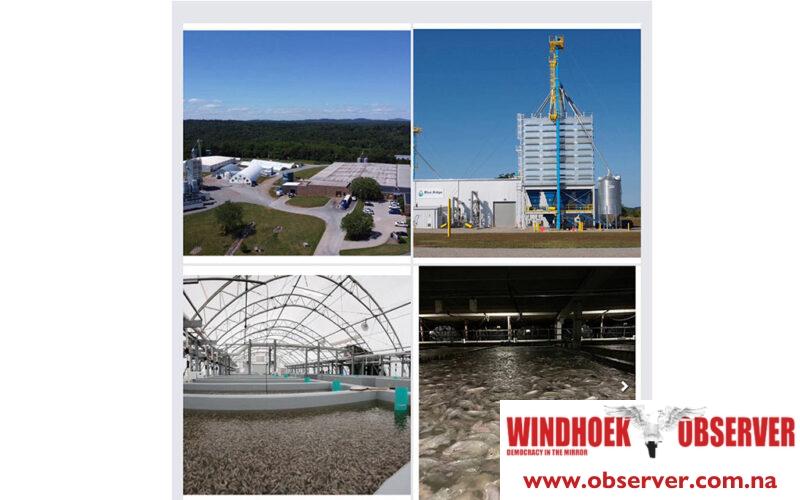Niël Terblanché
Henties Bay, in an ambitious leap towards sustainable aquaculture and economic development, is all set to accommodate the world’s largest indoor freshwater fish farm.
This groundbreaking project was introduced to residents and representatives of the local authorities by Blue Ridge Aquaculture, Inc., headquartered in Martinsville, Virginia, USA, in partnership with its local affiliate Blue Ridge Aquaculture Africa (Pty) Ltd, during a public meeting on Thursday and promises to revolutionize fish farming in Namibia while focusing on sustainability and innovation.
With a staggering investment of N$6 billion, the facility aims to produce up to 24 tons of fish daily.
Blue Ridge Aquaculture Africa informed participants of the meeting that N$1.5 billion would be invested in the initial phase of the project and that it would eventually be rolled out over four phases.
This technology utilizes state-of-the-art Recirculating Aquaculture Systems (RAS) and ensures a highly controlled environment, minimizing environmental impact while maximizing production efficiency.
RAS components include grow-out tanks, solids removal, biofiltration, oxygenation, and wastewater recovery, highlighting the project’s commitment to sustainability and environmental stewardship.
The project’s strategic location just five kilometres north of Henties Bay along the C34 road, emphasizes its potential to leverage local resources and contribute significantly to the Erongo Region’s economic growth.
By employing advanced aquaculture practices and having pioneered the indoor farming of tilapia without the use of antibiotics or hormones, ensuring a healthy and sustainable protein source Blue Ridge Aquaculture is on the cutting edge of innovation.
The initiative is not just a commercial venture but a sustainable development project aligned with several United Nations Sustainable Development Goals (SDGs), including zero hunger, clean water and sanitation, decent work and economic growth, and life below water.
This alignment with global sustainability goals underscores the project’s broader impact beyond its immediate commercial interests.
The Environmental and Social Impact Assessment (ESIA) study, conducted by EnviroPlan Consulting, confirms the project’s commitment to environmental preservation and social responsibility.
Key benefits highlighted include employment creation, environmental conservation through efficient resource use, and the provision of sustainable, healthy protein sources.
The ESIA process, integrating public participation and stakeholder engagement, ensures that community concerns and suggestions are incorporated, reinforcing the project’s commitment to environmental and social governance.
Despite its many benefits, the project team is mindful of potential challenges, including physical soil disturbance, impacts on local fauna and flora, and social conflicts due to land use changes.
Mitigation strategies and an Environmental and Social Management Plan (ESMP) are being developed to address these concerns, demonstrating a proactive approach to environmental stewardship and community engagement.
The establishment of the world’s largest indoor freshwater fish farm in Henties Bay by harnessing innovative technologies, engaging with local communities, and adhering to the highest environmental and social standards, this project is set to make a significant contribution to the region’s economic development while promoting environmental sustainability and food security.




